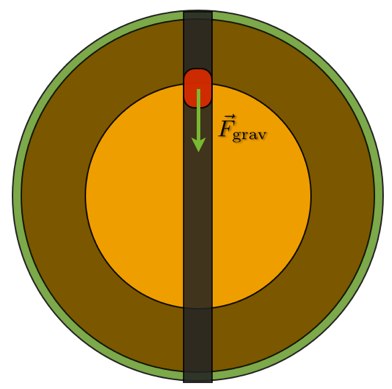10 Interesting Facts About Earth
Planet Profile
Mass: 5,972,190,000,000,000 billion kgEquatorial Diameter: 12,756 km
Polar Diameter: 12,714 km
Equatorial Circumference: 40,030 km
Known Moons: 1
Notable Moons: The Moon
Orbit Distance: 149,598,262 km (1 AU)
Orbit Period: 365.26 Earth days
Surface Temperature: -88 to 58°C
#1 The Earth Is Not Round
The Earth is a sphere, but due to its gravitational forces it is not a perfect circle. In fact, there is a bulge around the equator because of this. The Earth's Polar radius is 3,949.99 miles, while its Equatorial radius is 3,963.34 miles. That's right: the Earth has love handles.#2 Drilled A Tunnel Straight Through The Earth
If you drilled a tunnel straight through the Earth and jumped in, it would take you about 42 minutes to get to the other side
#3 Living Organisms On Earth
There are more living organisms in a teaspoonful of soil than there are people on earth
#4 The Earth- What’s in a Name?
Earth is the only planet not named for a mythological god or goddess. The other seven planets in the solar system were named after Roman gods or goddesses. For the five visible to the naked eye, Mercury, Venus, Mars, Jupiter and Saturn they we named during ancient times. This Roman method was also used after the discovery of Uranus and Neptune. The word “Earth” comes from the Old English word “ertha” meaning ground or land.
#5 Earth's Deepest Known Point
The earth's deepest known point equals to 24.5 Empire State Buildings end to end
#6 Mountains
The Andes Mountain range in South America is 4,525 miles long and ranks, as the world’s longest. Second Longest: The Rockies; Third: Himalayas; Fourth: The Great Dividing Range in Australia; Fifth: Trans-Antarctic Mountains. For every 980 feet you climb up a mountain, the temperature drops 3-1/2 degrees.

No comments:
Post a Comment